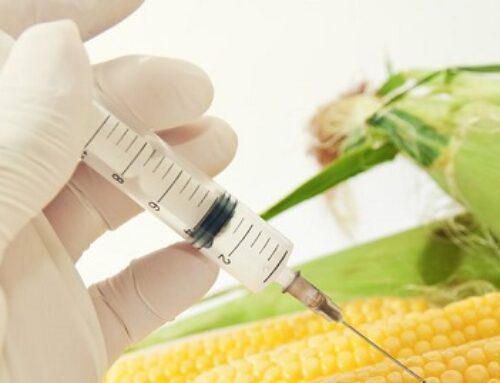Flawed food beliefs are common in our country. Here, I explain a few common nutrition myths and address one of the most important minerals we consume.
For those of you who read my articles regularly, you know I enjoy pointing out the flaws in many of the commonly accepted beliefs about our food culture, including beliefs about certain foods we are told are unhealthy.
There are many healthy foods whose reputations have been destroyed. Take eggs for example—a near-perfect food that humans have consumed for much of the history of mankind. In the 1950s, Ancel Keys’ Seven Countries Study pointed out several culprits of the United States’ then rampant rates of heart disease. Keys blamed smoking and cholesterol as primary contributors to this public health crisis. Suddenly, eggs were removed from the diet due to the incorrect belief that the cholesterol in egg yolks leads to high cholesterol levels in humans and causes heart disease. I find it interesting that there was not a single valid study that proved this theory. But, because this idea was promoted as scientific fact, many people went decades avoiding eggs (and many still do). More recent studies show that eggs indeed do not contribute to heart disease and high cholesterol, but have high levels of many important nutrients, including choline. Eggs are the absolute best source of this nutrient and other important nutrients, which are great for the brain.
How does a flawed study become so embedded in our food culture that doctors, nutritionists and the like have been advising people to forgo such a wonderful food option? This miss-belief about cholesterol was so powerful that the industrial food system saw a clear opportunity to manufacture and market a fake egg substitute. I still run into clients who are eating only hard-boiled egg whites and egg white only omelets (which taste horrible), with the incorrect belief they are preventing high cholesterol and therefore heart disease. We now know that eggs contain both “good” and “bad” cholesterol and modern science suggests that the consumption of “bad” cholesterol does not necessarily translate to an increase in bad cholesterol in the blood. Some studies show people who eat eggs regularly may have even lower cholesterol than those who avoid eggs!1.
Another food myth was perpetuated about the dangers of butter. Margarine was created and promoted as the “healthy” replacement for “dangerous” butter, even though margarine is synthesized from a toxic fat known as hydrogenated oil, which has mountains of damning evidence to prove how it damages the body’s blood vessels. (See my article: The Bad Fat.) I grew up eating margarine because my mother was concerned about butter clogging up blood vessels with cholesterol. But, who really benefited from this? The Edible Oils Industry has been making billions of dollars off our collective ignorance. They have had enough clout to influence the information that was disseminated about oils to consumers. Of course, we all know now that butter, a food consumed by humans for thousands of years*, really isn’t the food causing heart disease. Margarine has always been a culprit, a proverbial tub of trans fat driving the heart disease epidemic and ruining gall bladders with its inherent ability to damage the human body.
There are many of these incorrect food beliefs. Some are potentially very damaging to our health. But, the one I want to focus on today is salt. I am sure we have all read an article at some point that blames salt for our country’s epidemic of high blood pressure, which leads to heart disease. Salt is one of the top five most common macro minerals in the human body. The average daily consumption of salt is about 3,000 to 4,000 milligrams a day, in spite of the daily recommend amount of 2,300 (about 1 teaspoon), down to 1,500 mg a day if you are African American, older or have high blood pressure2. But, what does salt do for us, and is there any truth to the idea that excessive (and what defines “excessive”) salt consumption is unhealthy? I don’t believe so.
As with so many of our food fables, bad information about salt starts with a faulty theory that when we eat salt we get thirsty, which causes us to drink more water, then the excess salt causes us to hold onto the extra water, which is used to dilute the extra salt in the blood. This extra water in the blood causes more blood volume, which leads to high blood pressure. This theory looks like it makes sense at a superficial level. But once the public, government and health agencies accepted this explanation, it has been just about impossible to correctly reeducate. And, like almost every other function in the body, things are always a bit more complicated than they are made out to be. This is because most people just want simple uncomplicated answers, which are often not real answers at all.
Sodium’s many roles in our body and why it is an essential nutrient.
Table salt (sodium chloride) is turned into electrolytes once it is consumed and dissolved in our bodily fluids. Sodium (salt) is the positively charged cation that makes up the fluid that exists between our cells. Water and sodium levels are always working to balance each other out (osmoregulation). If we have an increase in sodium, say we have too much salty popcorn, our kidneys just absorb less sodium and the excess salt is lost in our urine. This is how we regulate our sodium levels and how we prevent cellular damage caused by moving fluid in and out of our cells. If our blood sodium levels get too low, our body’s wisdom knows to move water from the blood into the cells to bring sodium levels in the blood back up to normal.
If sodium levels in the blood increases, water is pulled out of the cells and moved into the blood to bring the sodium levels back down to normal again. This causes cells to lose water (cellular shrinkage). This causes a lot of damage, so our body works very hard to keep our sodium levels carefully regulated. If our body couldn’t do this, low blood sodium levels could lead to too much water in the brain which can cause death (if you are ever dehydrated, or see someone who is, confusion may be present. Dehydration makes your blood more concentrated with sodium, which can cause altered mental status. In the summer, it is especially important to watch older members of our community, as they may underestimate the amount of water they need. Confusion, tiredness, and not urinating are some good symptoms to watch for. Typically, this can be corrected by drinking water slowly, with a pinch or two of natural salt added, but in severe cases the person may have to be brought to urgent care for intravenous fluids).
Salt in the human body is important enough that our hormone aldosterone, produced by the adrenal glands, is able to move salt into our skin for extra storage and allows us to reabsorb more salt from the kidneys in times of need! Our bodies also have what is known as a volume sensor or receptor, found in the carotid arteries and the aorta, which senses pressure changes and sends signals to the brain telling the kidneys to either keep or excrete more sodium depending on salt stores. This mineral is important for a variety of reasons.
The bottom line here is that salt is an important mineral for many functions in the body. We need it and we have always needed it; and not surprisingly, at levels our federal government say are dangerous, but what real science shows is optimal (salt to taste). It is unfortunate that, once again, bad information has become better accepted by the public than the actual truth! Our kidneys can handle any excess salt just fine, unless the kidneys are put under high stress, then you could have problems3,4. If you are concerned your blood pressure is too high, the first thing to do is remove the other white crystal from your diet permanently, and you know I’m talking about—sugar! Nothing promotes inflammation, weight gain and high blood pressure like sugar.
Though there is a small percentage of people whose blood pressure is affected by salt intake, this doesn’t necessarily mean it is causing or going to cause heart disease. Remember: correlation does not equate to causation. And, if you have pushed the salt shaker away for a while now and are feeling tired, lethargic, depressed, or the craving for salt is torturous, you should consider salting your food again—chances are your blood sodium levels are too low and those are just some of the signs you may need salt.
A Better Choice
But, please choose a natural salt such as Real Salt®, pink Himalayan salt, or a quality sea salt, as these all are full of trace minerals and are a much healthier option than processed table salt which only contains sodium and chloride.
A funny personal story: Several years ago, I was invited to have dinner with a group of people. And though I knew the host, the rest of the people I did not know. Many were interested in what I did and I explained that I was a Nutritional Therapist. While I enjoyed my dinner, I watched a male dinner guest slowly, carefully reach for the salt shaker. I quickly realized he was intent on salting his food without his wife seeing. It was unsuccessful, as she seemed to be watching for this. She chastised him, and he heaved a great sigh as he put the shaker back and resigned himself to having his dinner without the salt. I felt sorry for him as I liberally salted my food.
Salt is important for the health of our body. It makes our food taste better, helps to regulate our blood volume and our body’s ability to maintain hydration, and helps with cell-to-cell communication, just to name a few functions. The few people who are salt sensitive related to their blood pressure may benefit from lower sodium diets, but generally I believe salt contributes to a healthier and stronger life and I advocate for liberal sodium intake. Go ahead, please, salt to taste!
In Good Health
Kalene
*Yes, you read that right. An ancient limestone tablet 4,500 years old shows a primitive recipe for butter. The Romans used it as a moisturizer. Ancient Siberians made beverages with it. Sailors treasured it on long journeys for its high energy content. Butter even has a history as a dowry gift! And, of course, butter was rationed during World War II, making it an even more valuable commodity5.
Cited References:
- Ratloff, J. Reevaluating eggs’ cholesterol risks. Science News. Available here. Published May 2, 2016. Accessed June 2018.
- DiNicolantonio J. The Salt Fix. Harmony Books; 2017.
- The great salt scam. Dr. Micozzi’s insider cures. Available here. Published June 23, 2012. Accessed June 2018.
- More senseless salt advice from the American Heart Association. Dr. Micozzi’s insider cures. Published January 1, 2013. Accessed June 2018.
- Dairy Goodness. The history of butter. Dairy Goodness Web Site. Available here. Accessed June 2018.










